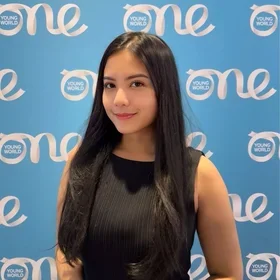Tiffany Bahar, a current student in Columbia’s M.S. in Applied Analytics program, enrolled in the program right after graduating with a Bachelor of Science degree at the University of Wisconsin-Madison. Having double-majored in psychology and data science, Tiffany was looking to build on that foundation and deepen her skills in analytics by getting a master’s degree. With the time and flexibility afforded to her by having just graduated from undergrad, Tiffany decided to enroll in the Applied Analytics program as a full-time student so that she could fully immerse herself in the learning process.
Although many of her peers in the Applied Analytics program are already experienced professionals, Tiffany feels that through interaction with them and with her professors, she is getting a broad perspective on the field and the practical application of what she learned in her undergraduate studies.
“Unlike my undergraduate experience, where most professors were focused on research and academia, the professors here bring real-world experience into the classroom,” said Tiffany. “They teach the concepts and share how they apply them in their professional roles.”
At the same time as she gets her degree, Tiffany works as a business analyst intern at Sumitomo Mitsui Banking Corporation, where she supports quality assurance for strategic projects and enhancements by collaborating with various departments to gather requirements from business and technology stakeholders. We recently spoke to her about her academic journey and the valuable lessons she’s learning in the Applied Analytics program.
What makes Columbia’s Applied Analytics program unique?
I really appreciate how the Columbia program covers both technical skills and the business aspect of analytics. We’re discovering how what we’re learning is applicable in a variety of roles in different industries. This program emphasizes the importance of effectively communicating complex coding results to non-technical audiences.
How has your experience been attending classes with students who are already professionals in the field?
Coming straight from undergrad has definitely had its benefits. One of the key advantages is that the concepts I learned are still fresh in my mind, which has made it easier to transition into a master’s program. Although I sometimes feel intimidated by my classmates, who have years of experience, I see that as a valuable learning opportunity. Hearing about their skills, past work, and the various industries they come from gives me a unique point of view and a glimpse into different fields.
What has been your favorite course so far?
The Applied Analytics in Organizational Context class I took in my first semester really helped me grasp the basic business concepts of analytics. As someone who never had business classes in undergrad, learning about balance sheets, income statements, and stakeholders was new to me and incredibly valuable. The concepts we learned gave me a wealth of knowledge that I now draw from for my internship. I see how the concepts we learn in class can be implemented in a real-life setting.
What has been the most valuable part of your experience at Columbia and in the program?
One of my favorite parts about my experience at Columbia has been learning from professors who are actively working in the industry. They often bring in case studies and real-world examples, which has made the learning process feel engaging and relevant. For example, in the Applied Analytics in Organizational Context class, Professor Lisa Godek shared examples from Pzifer, where she was working, to translate what we were learning to how it could be used at a major company. She brought in actual case studies and examples of challenges that Pfizer has faced and how she solved them by incorporating the concepts she was teaching us.
What’s your advice to incoming students?
Take the DataCamp that is required for all incoming students seriously. It is an online platform with virtual lessons and coding challenges with various programming languages like R and Python. Thoroughly engaging with those courses will refresh your knowledge before the program and help you keep up with the pace of the class without feeling intimidated. Also, make friends in the program. The students are welcoming and kind, and it’s fascinating to learn alongside people from all different backgrounds.
About the Program
Columbia University’s Master of Science in Applied Analytics prepares students with the practical data and leadership skills to succeed. The program combines in-depth knowledge of data analytics with the leadership, management, and communication principles and tactics necessary to impact decision-making at all levels within organizations.


